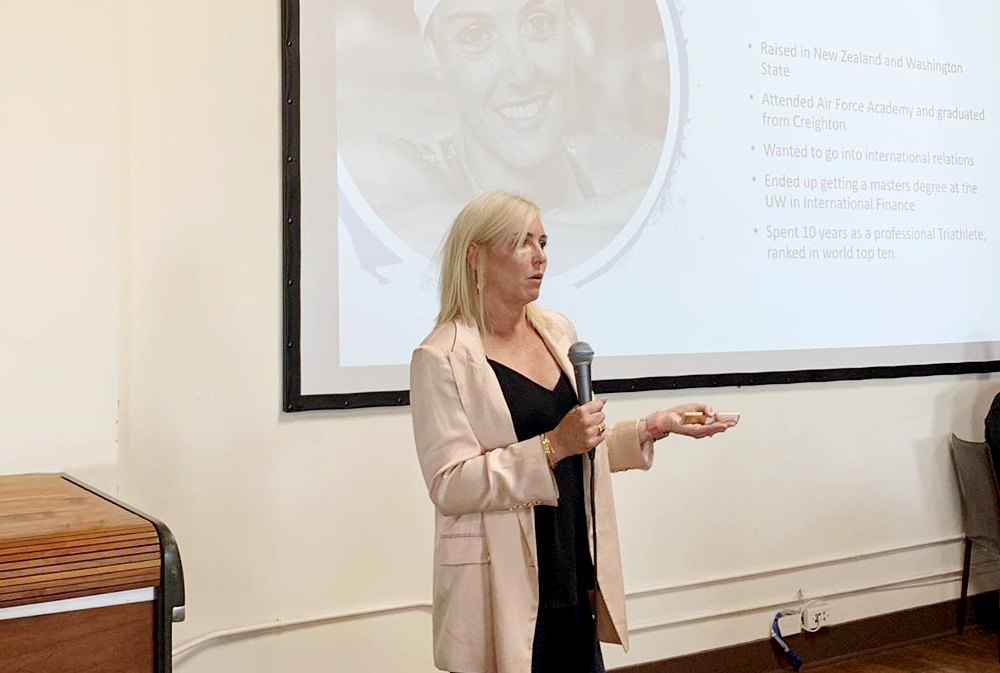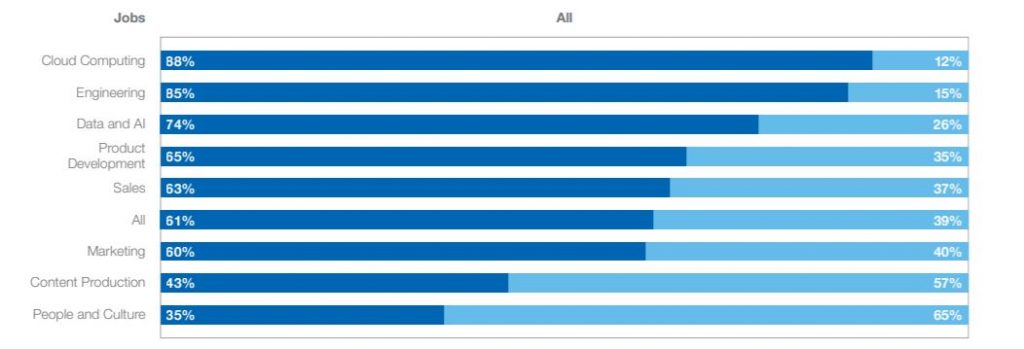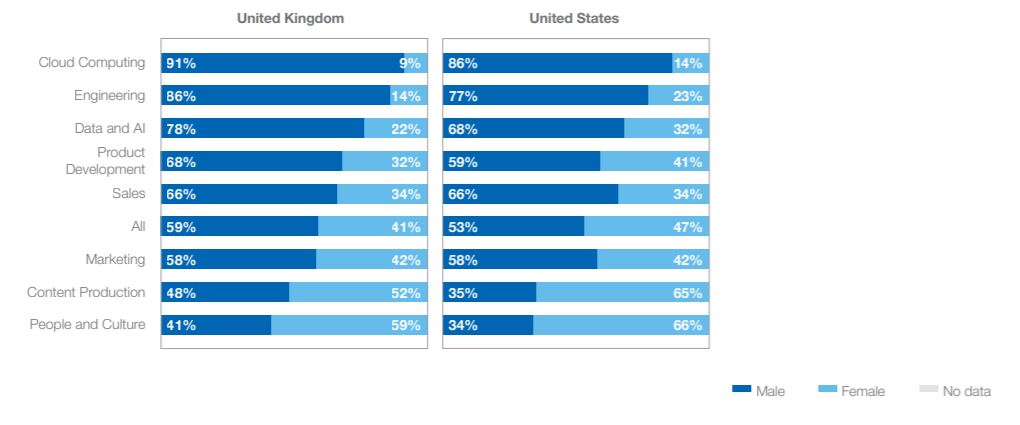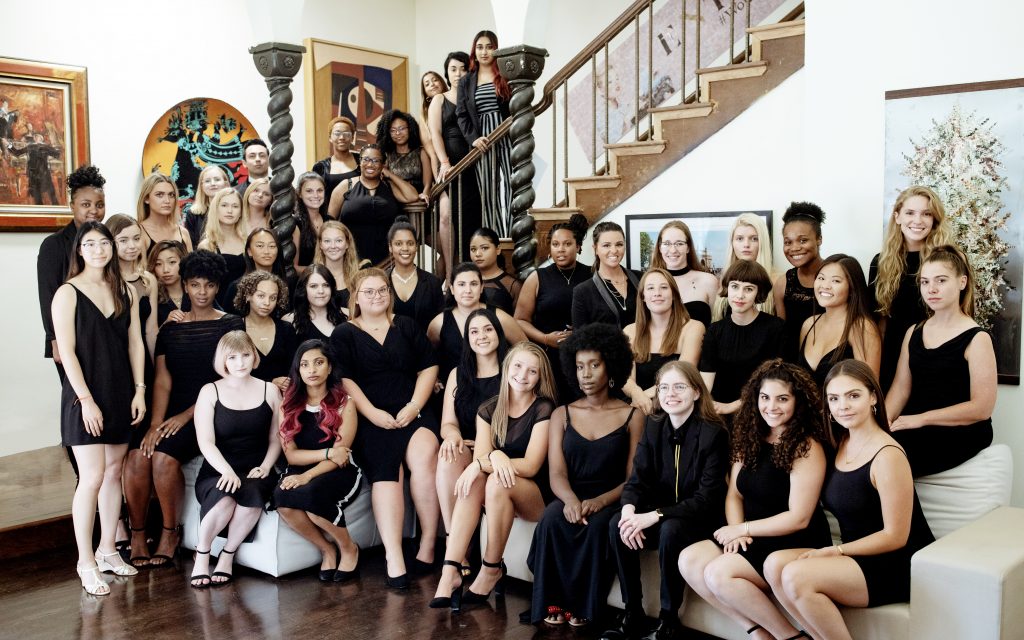Culture March 4, 2020


Data science is one of the fastest-growing and most lucrative job fields of the 21st century. However, one study by executive recruiting firm Burtch Works found that only 15 percent of data scientists are women. The same study also found that even fewer women, 18 percent, were awarded bachelor’s degrees in computer science in 2016. The good news, though, is that there are people and organizations currently working to even the score.
Enter Susan Alben, a business value engineer and solution seller for Microsoft. This former stock-trader turned international financier first started out in the tech industry when there were few women on the scene. So now, she’s investing in the next generation of women in tech through the Alben Foundation’s partnership with ENTITY Academy.

Alben got hired at an investment bank straight out of college. After about two years at this position, she realized stock trading wasn’t the path for her. So, she decided to go to graduate school to get a degree in international finance. She took a job at a large multinational company in New Zealand, which presented a new hurdle. There, she was the only female manager on staff and she wasn’t progressing because there wasn’t really space for women to grow and gain experience in the company. This led to her decision to switch careers.
Alben moved back to the United States to get a fresh start in technology, where she finally found a job that resonated with her and gave her a sense of purpose.
Currently, her role at Microsoft is to analyze how and where technology, such as AI, can be used by various companies. With this job, she has a responsibility to make sure companies she sells products to will not abuse this power.
“If I’m selling Artificial Intelligence to insurance companies, I want to make sure those insurance companies don’t use AI to find out so much about people that they deny them health insurance or car insurance,” Alben explained.
Artificial Intelligence has already grown so much and come so far, but it still has a long way to go in terms of weeding out our human biases. Data scientists need to be diverse in order to teach AI things that a machine could never experience the way humans do.
Other than AI, Alben says there are numerous professions that need more women – computer science, coding, and engineering, for starters.
“Anything that touches technology, we need more women,” she said.
“Technology is going to be such a huge part of our economy, whether those women are computer scientists, coders…or if those women are heads of strategy, deciding what’s going to happen, deciding what kind of products [companies] are going to use.”
Furthermore, another positive aspect of having more women in tech is that it brings a sense of female camaraderie. There will be a community of women in the field that can lift each other up. Alben mentioned meeting a fair amount of women throughout her time working in tech who are concerned about feeling alienated at a male-dominated workplace.
The Global Gender Gap Report is a comprehensive study done annually by the World Economic Forum. They have been conducting this report since 2006 to examine improvements in gender equality in 153 countries over time. In their 2020 report, they found that around the world, only 12 percent of cloud computing jobs, 15 percent of engineering jobs, and 26 percent of data and AI positions are held by women.


The study broke it down by country and found that in the United States women hold only 14 percent of cloud computing jobs, 23 percent of engineering jobs, and 32 percent of data and AI jobs. This is better than the global average, but the gender gap in the technological field is still very stark.


“I talk to women about [data science] and they say, ‘I don’t really want to work with those guys [male data scientists], those aren’t really my people. I kind of feel alone,’ and I totally understand that. You want to be in a place where you spend eight hours a day working with people who are interesting and kind of like you.”
It’s important to a lot of professionals to find a job with “their people.” Studies show that employees are more productive when they have friends at work. It can also lead to higher job satisfaction and greater company loyalty.
On a message board on teamblind.com, a user started a thread about how she often feels excluded that she’s the only woman at her company’s technical department. Some of the things she experienced were minor – such as men trying not to swear in her presence or not inviting her to lunch – but she later began to notice that decisions were being made without her, even on projects that were her idea.
“I think men do not want to be challenged by women in technical areas,” the teamblind.com user wrote. “Or, perhaps partly because men think differently, when I disagree they all seem to band together to defend each other, so my ideas never come through. I was only expected to take direction from the men and do the grunt work, even though I have just as many years of experience as them.”
So what Susan Alben is saying has truth to it. In the long run, with more women in the field, we are creating communities where they can feel included and confident about their work. This then leaves room for all types of women to thrive in the industry.
Data science is not just for math nerds. Really, data science could be helpful no matter what kind of company someone works at.
“Whatever you decide to do, whatever you’re most passionate about, whether it’s journalism or criminal justice – you name it – I can tell you: Artificial Intelligence is going to affect it,” Alben shared.
To her, a good data scientist is not just someone who can collect and analyze numbers. A good data scientist can tell a compelling story and make a compelling argument with said data. With these stories, employees can go to executives in any organization and present their findings to ultimately influence decisions the company makes going forward.
This is especially true for journalists. A really important skill in journalism is building your publication’s credibility, not to mention your own. If you’re writing a story about how mascara sales are going down because sales for false lashes are increasing, how do you know that? Where is this information coming from? If you have numbers, a chart, or even a study, those things instantly add proof to your claims.
Let’s say you’re a huge fan of cosmetics and skincare. In order to be on top of what’s hot, companies need someone to look at sales numbers, make data sets, and analyze said numbers. Going back to the eyelash example, if you work at a cosmetics company that does not manufacture false lashes, you can report to executives that they’re behind the times with current trends, which could potentially put the company in the red.
Alben explained this is the reason she finds statistics to be so interesting. There are data points that seem to go in certain directions for certain reasons, and statisticians get to be the detectives who figure out why the numbers are behaving that way.
“It’s about finding out what portion of the problem is the false lashes sales and what portion of the problem is women going for a more natural look?” she said.
So really, data science isn’t just math, numbers, and computer screens. Part of it is about using the creative regions of the brain to problem-solve, make educated guesses, and tell stories.
Susan Alben and her husband Alex started The Alben Foundation in January 2020. It is a charitable trust that is focused on changing particular issues in technology. These include AI for the public good, privacy education, digital citizenship, and women in data science.
For that last initiative, they decided to get help from ENTITY Academy. Alben said that she liked ENTITY’s hands-on, mentor-driven approach to education.
“One, they’re focused on women, and two, they’re really good at marketing and supporting the girls and the women through mentorships and making sure they’re ready for jobs,” she said.
That said, she was more than happy to come and speak to ENTITY Academy’s 2019 mentees about STEM.


After her talk, Alben mentioned that she had students studying various subjects, from journalism to criminal justice, saying that they had never considered that learning a bit of data science could be helpful for them.
She also observed that the young people she met at ENTITY Academy seemed more focused on the greater good than some generations before.
“The generations of girls I was talking to were very excited to learn what would help the earth and what would help other people. They had a much more charitable focus on what they wanted to do with their lives.”
At this point, the focus of the Alben Foundation’s mission became even more clear. To get more women into tech, the question they must ask is: How do we get more women into data science to work towards a greater good?
For 2020, ENTITY Academy and the Alben Foundation are teaming up to deliver various data science programs. One of these is a 33-week course aimed at women from all walks of life. The first-ever ENTITY Data Science Virtual Academy will welcome people who maybe have been out of college for a while and are looking for a career change. Or maybe they never went to college in the first place. The bottom line is that many people don’t have the time or resources to go back to school full time.
ENTITY is partnering with Southern Careers Institute and Woz U to make sure women have access to the most advanced and up-to-date data science program out there. In addition, students will benefit from ENTITY’s well-established focus on mentorship and soft skills training. Through ENTITY, students will learn important, day-to-day skills that will help them thrive in the 21st-Century workforce, like leadership, self-confidence, resilience, and many more.
Alben said that the kinds of data scientists that are needed in the field right now are not always people with higher-level degrees. She emphasized that you don’t need a four-year degree to get hired.
“Just stick with it. It’s not going to take as long as you think it will and there are a lot of good jobs out there. If you find yourself struggling just keep going.”
Her main point was that students must have resilience. Whether they pursue a traditional four-year degree or complete an online learning program like the Data Science Virtual Academy, Alben said there’s a certain amount of “Stick With It-ness” involved.
Within the next few years, the Alben Foundation will find out what is really working to get women into tech. Do scholarships help? Does ENTITY creating a female-centered community in their programs help?
“People enrolling [to Data Science Virtual Academy] means they like the message and that they’re interested. The next question would be, ‘Can I keep them interested? Will this become a lifelong job for them?’”
There are countless variables that will indicate the program’s success. Despite this, Alben is excited that the Foundation’s mission is finally underway. She said she felt like she “had to do something” to change the landscape of the tech industry, and she’s hopeful that this partnership with ENTITY Academy will move things forward.
“We’re changing the world, we’re moving the needle, one little program at a time.”